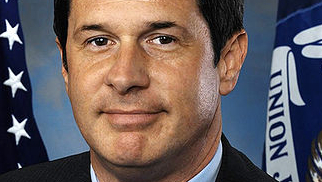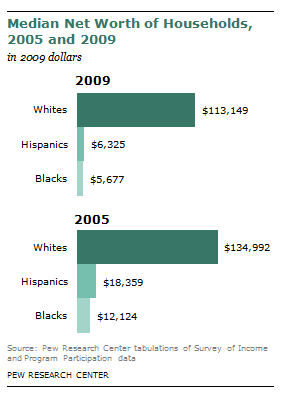Matthew Yglesias's Blog, page 2227
July 27, 2011
Amnesty For David Vitter

Even though paying a prostitute to have sex with you is a crime, Sen. David Vitter (R-LA) who's confessed to having committed said crime, isn't currently in jail. Nor has he ever served jail time, or been arrested, or stood trial. And as Rep. Zoe Lofgren (D-CA) writes, this makes it pretty rich for Senator Vitter to be upset about the fact that some unauthorized migrants to the United States aren't being deported:
In the District of Columbia, it is a crime to engage in prostitution. In July of 2007, Ms. Deborah Palfrey, known as the DC Madam who had been convicted under this statute, published her phone records indicating that one of our witnesses was her client. Later Senator Vitter said this was a very sin in my past for which I am completely responsible. Under the DC criminal statute related to solicitation, the senator ninety to one hundred days but he never faced trial. In fact, prosecutors never brought charges. Sure looks like he benefited from prosecutorial discretion. I would not mention this incident today if it didn't expose the hypocrisy of seeking to prevent the use of discretion to benefit others when one has enjoyed the benefit himself.
One important difference is that I think failing to arrest and try Vitter was a bad use of prosecutorial discretion. A trial for a powerful wealthy individual would have been an excellent teachable moment for the country to consider whether the current state of legislation around the exchange of sex for money really makes sense.


A Clean Debt Ceiling Increase Wouldn't Avoid Cuts

I've been in a few conversations with various people this week citing one strategy or another that they claim could have produced a "clean" debt ceiling increase and avoided the current legislative crisis. I basically agree with all these theories. Obama could have gotten a debt ceiling increase built into the December 2010 tax deal, and Obama could have simply demanded a clean debt ceiling increase and probably gotten one months ago. But I'm not sure this is a case of bad negotiating strategy or good negotiating strategy.
We've seen so much mockery of "11-dimensional chess" that I think people have gotten unduly reluctant to credit the idea that there's a bit of regular old chess happening here where you have to think one or two moves ahead. In particular, if we had a clean debt ceiling increase, that wouldn't change the fact that Republicans control the House and Republicans want spending cuts. All that would happen is we'd roll into September, when the current set of discretionary appropriations are set to expire, with Republicans demanding that any new appropriations deal feature spending caps, entitlement cut commissions, etc. In other words, the fight we're having in July would be happening in September. I think reasonable people can disagree as to whether having the fight now is better than having the fight then, but I don't think it's by any means crazy for the White House to suppose that the current timing is more favorable to the progressive side or crazy to believe that they did, in fact, see two moves ahead and decide they preferred this outcome.


Your Debt Ceiling Playlist
— 1. The Streets, "Everything Is Borrowed".
— 2. Tom Petty and the Heartbreakers, "I Won't Back Down" (for the Tea Party).
— 3. Journey, "Any Way You Want It" (for President Obama).
— 4. Pink Floyd, "Is There Anybody Out There" (for the House Progressive Caucus).
— 5. The Kinks, "Low Budget".
— 6. The Clash, "Time Is Tight".
— 7. The Noisettes, <p>— 8. Chuck Brown and the Soul Searchers, <a href=" />
If We Make K-12 Education The Same As College, Expect The Same Results

"Imagine," ask Arnold Kling and Nick Schulz, "what might happen if government involvement in education were restricted to giving school vouchers to households below the median income."
I think it's pretty obvious what would happen. K-12 education would start looking a lot more like college education, where by far the biggest federal involvement is semi-targeting tuition subsidies for people in need. What would happen is that is that out of pocket spending by higher income families on schooling would explode. Right now across the vast majority of the country, the convention is that moving to a place with a decent public school system and sending your kids to it constitutes doing the right thing by your kids. But in vouchertopia, there will be massive status competition. Parents who can afford to foot the bill to send their kids to the Ivy League of high school will do so. And, like in higher education, the "quality" of a given school will be determined primarily by the quality of the inputs. Consequently, schools will compete to try to be as selective as possible and will offer targeted tuition discounts to kids who enter school with unusually high ability levels. High school graduates will earn a substantial premium over dropouts, but we'll have endless disputes over how much of this earnings premium is signaling/selection and how much reflects actual learning.
Needless to say, Kling and Schulz predict, instead, that vouchertopia will lead to an explosion of efficiency and innovation. But they have to explain why making K-12 education more like college education won't just make K-12 education the same as college education. This is their effort:
Beyond grade 12, entrepreneurship in education is held back by government support for the incumbents in the industry. From accreditation to subsidies, government sends a message that existing colleges and universities are the only legitimate players, while new entrants are suspect.
But "giving school vouchers to households below the median income" would be a subsidy and it would require a system of accreditation. And since the vouchers would need to be pegged to some kind of objective measure of school costs, the vouchers would increase in size as tuition costs skyrocket, driven by status competition. Libertarians wouldn't like this, and they'd write articles about how the problem could be solved if we would just get rid of subsidies and accreditation.
If subsidizing children's education is a good idea (and I think it is), then you need some kind of effort to ensure that you're paying for quality. That means you're necessarily in some kind of statist command-and-control space. Alternatively, if you want to say that the government needs to just get out of the way, then the government needs to get way out of the way, and I don't think there's any evidence that this would be a good idea. A lot of Americans have in their heads this idea of us being historically the most free market and capitalistic country out there, but from the earliest days of the republic, we've been the best educated country.


ANNOUNCEMENT: The Rent Is Too Damn High!
I'm excited to announce that last week I signed papers on a deal to publish a relatively short relatively cheap e-book with Simon & Schuster. The working title is THE RENT IS TOO DAMN HIGH and the subject is the exciting and under-discussed world of housing policy. To get the full argument you will, of course, need to buy the thing, but the basic idea is to make the case that pathological elements of our housing policy that increase the cost of living in desirable neighborhoods of key metropolitan areas are an underrated of America's economic and social problems. Longtime readers will be familiar with the general shape of my thinking on this issue, but the ideas are going to be laid out in a more systematic way with a much more comprehensive look at how it all fits together and what levers might exist to make the rent less damn high.
The projected length will be something in the 15,000-20,000 word range with a price point commensurate to the relatively short length, and it should be available in a variety of formats. I'm excited about this project both because I'm invested in the issue and because I'm glad to be able to innovate a bit with format. I've felt for years that I have more to say about this subject than can fit into a magazine article, but didn't want to write a book full of filler, and I'm thrilled that Simon & Schuster's going to give me the chance to do that. At any rate, in the interests of actually finishing the project and building your enthusiasm for it, I'm going to try to restrain myself from writing about housing and urban planning for a bit now until we're actually ready to release the thing.
Get excited!


Government-Sponsored Gambling Is A Bad Idea

Wealth has of course declined across the board with the decline of home values and the recession, but a new Pew Research Center report indicates that the gap has been especially severe for minority households.
I think Arnold Kling is right to say that one of the things this highlights is the real problem with government programs to "encourage" homeownership. Homeownership, for most of us, involves making a highly leveraged speculative investment in land. When Fannie Mae or other government entities create special targeted programs to "help" low-income families achieve homeownership what they're doing is extending an extra special amount of leverage to said families. This is a real subsidy, and it can provide a real benefit to the families in question, but it's a mighty strange thing to be doing. After all, nobody ever proposes that the government create a program to subsidize poor people making leveraged investments in oil futures. Why not just take the expected cost of the program and give it to poor people? Of course, with housing it's complicated because the government runs other programs, mostly on the tax side, to subsidize speculative leveraged investments in land when undertaken by higher income people. Thus a certain kind of unfairness arises by failing to come up with ways to create subsidies for poor people.
But the right solution here is to try to unwind the whole tangled knot of subsidies and help poor people with much more targeted measures that don't involve pushing them into taking on more risk than is prudent.


Absence Of Government Regulation Redistributes Wealth From Fishermen To Farmers, Home Owners

By Matthew Cameron
In the latest installment of why appropriate government regulation is extremely important to the maintenance of a sustainable agricultural system, here's the Washington Post reporting about the current state of the Chesapeake Bay:
A giant underwater "dead zone" in the Chesapeake Bay is growing at an alarming rate because of unusually high nutrient pollution levels this year, according to Virginia and Maryland officials. They said the expanding area of oxygen-starved water is on track to become the bay's largest ever. [...]
That's bad news for biologists who monitor the bay and horrible news for oysters and fish. Dead zones suck out oxygen from deep waters and kill any marine life that can't get out of the way.
The article goes on to note that the EPA is attempting to do something about this sorry situation by mandating a "pollution diet" for the five states in the Chesapeake Bay Watershed. This is being fought tooth-and-nail, however, by those responsible for much of the pollution:
[T]he plan is being challenged by two powerful lobbies and other groups that are seeking a court order to block it. The American Farm Bureau Federation argued that costly conservation requirements could drive farmers in the Chesapeake Bay watershed out of business, and that states — not the EPA — should determine pollution limits.
The group's lawsuit in a federal district court in Harrisburg, Pa., asks a judge to stop the plan from going forward. The National Association of Home Builders recently joined the suit.
This case reveals yet another pernicious effect of inadequate government regulation. Not only does it doom Chesapeake Bay wildlife and unfairly transfer wealth from future generations to current residents by allowing for the overexploitation of natural resources, but also it amounts to a huge subsidy for certain economic constituencies at the expense of others. Farmers and home owners derive tremendous benefit from being given carte blanche to use the Chesapeake Bay as a reservoir for the nutrient runoff that they produce through animal feeding operations and lawn treatment routines, respectively. Yet it's fishermen who are being asked to pay for this in the form of reduced incomes that have resulted from the steady decline of seafood catches.


Why Does Dinesh D'Souza Advocate Colonialism?

Via a rightly appalled Ta-Nehisi Coates, the latest from Dinesh D'Souza's brief for colonialism:
Each spring, the King's College, a Christian school occupying two floors in the Empire State Building, hosts a series of lectures and debates on a single theme. This year's theme is villainy. In a windowless basement room, Dinesh D'Souza, the college's newly installed president, is delivering his remarks to a student camera crew, two potential donors, and about 30 undergraduates. In keeping with the college's dress code, the students wear business suits.
"I want to talk a little bit about what I call the unique villainy of Barack Obama," D'Souza, 50, says with a grin. "In my view, it's the villainy of nondisclosure." Obama campaigned as a standard liberal, D'Souza says, but actually is a vehement anti-colonialist. "For Obama, the radical Muslims are on the right side of history–that's why he is so unnaturally solicitous toward them."
Coates is disturbed for the future of America's children in a world where "somewhere, someone is being educated by a dude a step away from the tin-foil." It's important to note, though, that this isn't just one random guy. I think it's fair to say that David Koch is an influential member of elite opposition to President Obama and he's on the same page as D'Souza: "Obama's a hardcore socialist, and he's marvelous at pretending to be something other than that, but that is what I believe he truly is, a hardcore socialist. He's scary to me."
So you see basically this same strain of madness coming from the grassroots, coming from "thinkers" like D'Souza, and coming from moneymen like Koch. Sure Obama says he has conventional Democratic Party views and sure he's conducted himself that a conventional member of the Democratic Party, but clearly he has a secret agenda discernable only to his most deranged political opponents. Still, there is a question in my mind of why D'Souza finds colonialism so insidious. Wasn't George Washington an anti-colonialist? Which countries does D'Souza think should be colonized?


Balanced Budgets And Household Finance
As you know, I don't think we should understand the budget policies of a large country able to borrow in its own fiat currency via analogy with the budget practices of a prudent household. But I'm always puzzled by people like Rep. Pat Meehan (R-PA) who seem to think that household budgeting is similar to a balanced budget amendment. In the course of making the case for such an amendment, he observes that "[e]very day families in southeastern Pennsylvania make tough decisions in order to live within their means."
I'm sure that's true. But even without being intimately familiar with conditions in southeastern Pennsylvania, I feel confident that every day families in southeastern Pennsylvania do things like get mortgages to buy a house. Certainly that's what families do in the Washington, DC area. And as I recall from my college years, people often take out student loans to go to school. Certainly I have a mortgage. I've used my credit card. Over the long term, clearly, a household's income has to equal its expenditures. But what kind of a family balances its budget on a year-to-year basis? How would anyone ever start a business in a world like that? It's kind of amazing to me what can be passed off as common sense if you just repeat it enough.


House Republicans Psyche Themselves Up By Watching Ben Affleck Prepare To Beat Some Guys Up
For some reason the Washington Post's reporters decided to sanitize the anecdote, but apparently House GOP leaders are trying to garner support for John Boehner's debt ceiling plan by comparing it to a street gang prepared to beat a couple of people up:
House Majority Whip Kevin McCarthy (R-Calif.), the party's vote counter, began his talk by showing a clip from the movie, "The Town", trying to forge a sense of unity among the independent-minded caucus.
One character asks his friend: "I need your help. I can't tell you what it is. You can never ask me about it later."
"Whose car are we gonna take," the character says.
After showing the clip, Rep. Allen West (R-Fla.), one of the most outspoken critics of leadership among the 87 freshmen, stood up to speak, according to GOP aides.
"I'm ready to drive the car," West replied, surprising many Republicans by giving his full -throated support for the plan.
The actual line from the scene is "I need your help. I can't tell you what it is. You can never ask me about it later. We're gonna hurt some people."
Watch for yourself:
That last bit seems relevant to me. And, indeed, Boehner's plan would hurt some people. The Center on Budget and Policy Priorities has calculated that, if enacted, it "could well produce the greatest increase in poverty and hardship produced by any law in modern U.S. history."


Matthew Yglesias's Blog
- Matthew Yglesias's profile
- 72 followers



